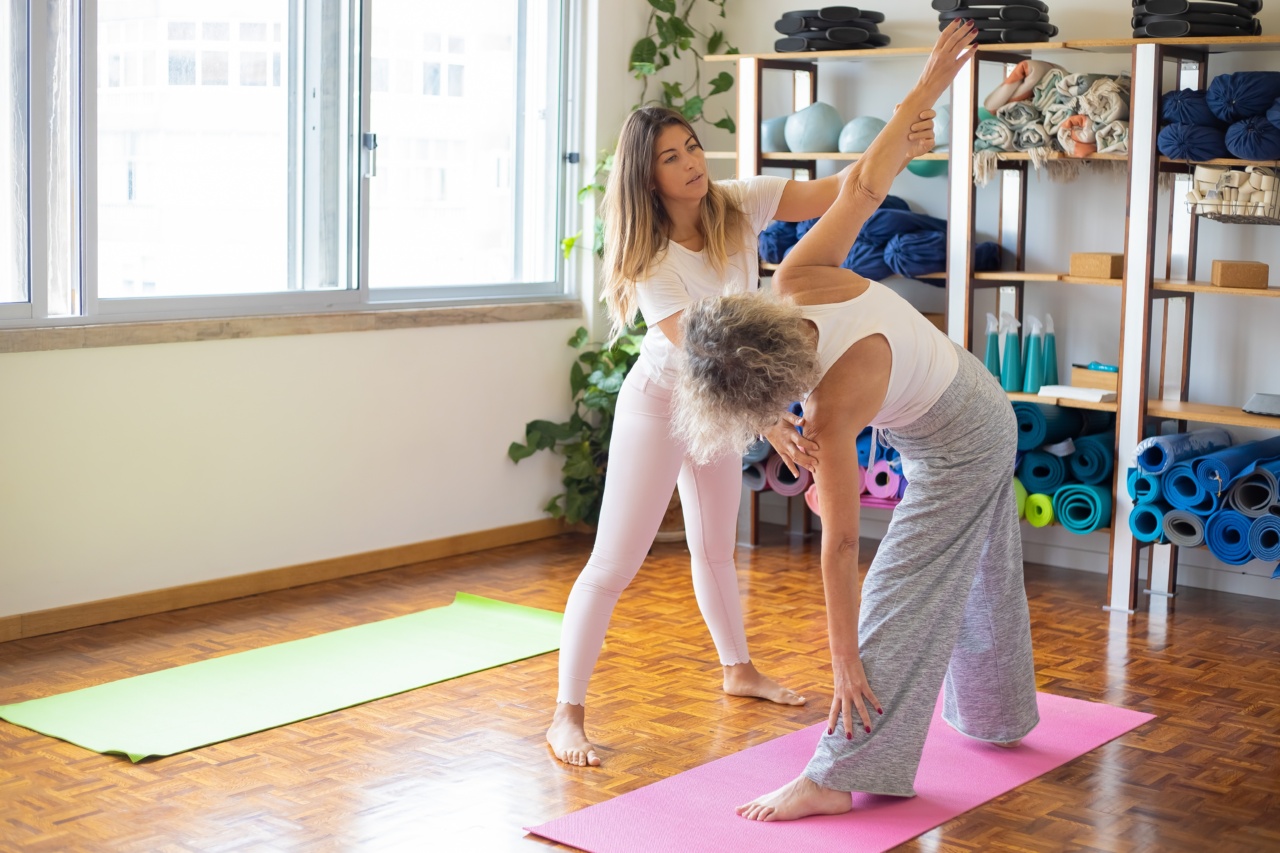Insomnia is a common sleep disorder that affects millions of people worldwide. It can lead to difficulty falling asleep, staying asleep, or experiencing poor quality sleep.
While there are various treatment options available, one effective and natural way to combat insomnia is through regular exercise. In this ultimate guide, we will explore how exercise can help you overcome insomnia and improve your sleep quality.
What is Insomnia?
Insomnia is a sleep disorder characterized by the inability to fall asleep or stay asleep, leading to inadequate sleep and fatigue during the day. It can be a temporary or chronic condition, affecting people of all ages.
Insomnia can have several underlying causes, including stress, anxiety, depression, unhealthy sleep habits, medications, and medical conditions.
The Link Between Exercise and Sleep
Regular exercise has been proven to have numerous beneficial effects on sleep quality. Engaging in physical activity on a regular basis can help regulate your sleep patterns and improve the overall duration and quality of your sleep.
Exercise can also help reduce symptoms of insomnia by reducing anxiety and stress levels, which are common culprits of sleep disturbances.
The Best Exercises for Beating Insomnia
Not all exercises are created equal when it comes to combating insomnia. Some exercises are more effective than others in promoting better sleep. Here are some of the best exercises you can incorporate into your routine to help beat insomnia:.
1. Aerobic Exercises
Aerobic exercises, such as jogging, cycling, swimming, or dancing, are excellent choices for improving sleep.
These exercises increase your heart rate, improve blood circulation, and stimulate the release of endorphins, which are natural mood boosters and stress reducers.
2. Yoga
Yoga combines physical postures, breathing techniques, and meditation to promote relaxation and reduce stress. The gentle and controlled movements in yoga can help calm your mind and prepare your body for a restful sleep.
Incorporating yoga into your daily routine, especially in the evening, can have a profound effect on your sleep quality.
3. Strength Training
Strength training exercises, such as weightlifting or resistance training, can positively impact sleep quality. These exercises help improve muscle strength and promote better overall physical health, leading to improved sleep.
Strength training also releases endorphins, helping reduce anxiety and promote a more relaxed state.
4. Pilates
Pilates focuses on core strength, flexibility, and body awareness. This low-impact exercise can help relieve tension in your muscles and promote relaxation.
By incorporating Pilates into your routine, you can improve your sleep quality and reduce insomnia symptoms.
5. Stretching
Stretching exercises, such as gentle stretching or practicing techniques like tai chi, can help relax your body and prepare it for sleep.
These exercises promote flexibility and relieve muscle tension, allowing you to have a more restful and uninterrupted night’s sleep.
6. Mind-Body Exercises
Mind-body exercises, including meditation and deep breathing exercises, can calm your mind and reduce stress levels. Practicing mindfulness and focusing on your breath can help you relax before bedtime and alleviate symptoms of insomnia.
7. Outdoor Activities
Engaging in outdoor activities, such as walking, hiking, or gardening, not only provides physical exercise but also exposes you to natural sunlight.
Sunlight exposure helps regulate your body’s internal clock and boosts your mood, both of which contribute to better sleep.
8. Precautions for Exercising with Insomnia
While exercise can be beneficial for improving sleep, it’s essential to consider certain precautions when incorporating exercise into your routine:.
a. Consult with Your Healthcare Provider
If you have any underlying medical conditions or concerns, it’s crucial to consult with your healthcare provider before starting a new exercise regimen. They can provide personalized recommendations based on your health status.
b. Time Your Exercise Wisely
Avoid vigorous exercise close to bedtime, as it can increase your alertness and make it harder to fall asleep. Engage in exercise at least a few hours before your intended bedtime to allow your body and mind to wind down.
c. Start Slowly
If you’re new to exercise or have been inactive for a while, it’s important to start slowly and gradually increase the intensity and duration of your workouts.
Overexertion or extreme physical activity may have the opposite effect on your sleep.
d. Create a Consistent Routine
Establish a regular exercise routine and stick to it. Consistency is key in reaping the benefits of exercise for sleep. Aim for at least 30 minutes of moderate-intensity exercise most days of the week.
e. Listen to Your Body
Pay attention to your body’s signals and adjust your exercise routine accordingly. If you experience pain, discomfort, or extreme fatigue, take a break and allow your body to recover.
The Additional Benefits of Exercise
Exercise not only improves sleep but also offers a multitude of other benefits for your physical and mental well-being:.
a. Reduced Stress and Anxiety
Regular physical activity helps release endorphins, which act as natural stress and anxiety reducers. Exercising regularly can significantly lower your stress levels and improve your overall mood.
b. Increased Daytime Energy
Better sleep resulting from exercise leads to increased daytime energy levels. When you’re well-rested, you’ll feel more energized and focused throughout the day.
c. Weight Management
Regular exercise helps maintain a healthy weight and can contribute to weight loss when combined with a balanced diet.
Excess weight or obesity can be a contributing factor to sleep disturbances, so exercise plays a crucial role in managing proper sleep.
d. Improved Physical Health
Engaging in regular physical activity improves cardiovascular health, strengthens muscles and bones, and reduces the risk of certain diseases such as diabetes and hypertension.
Conclusion
Overcoming insomnia and improving sleep quality can sometimes seem like an uphill battle. However, incorporating regular exercise into your routine can be a game-changer.
Remember to choose activities that suit your preferences and abilities, and always listen to your body. With consistency and dedication, exercise can become a powerful tool in your fight against insomnia and lead to better sleep and overall well-being.






























